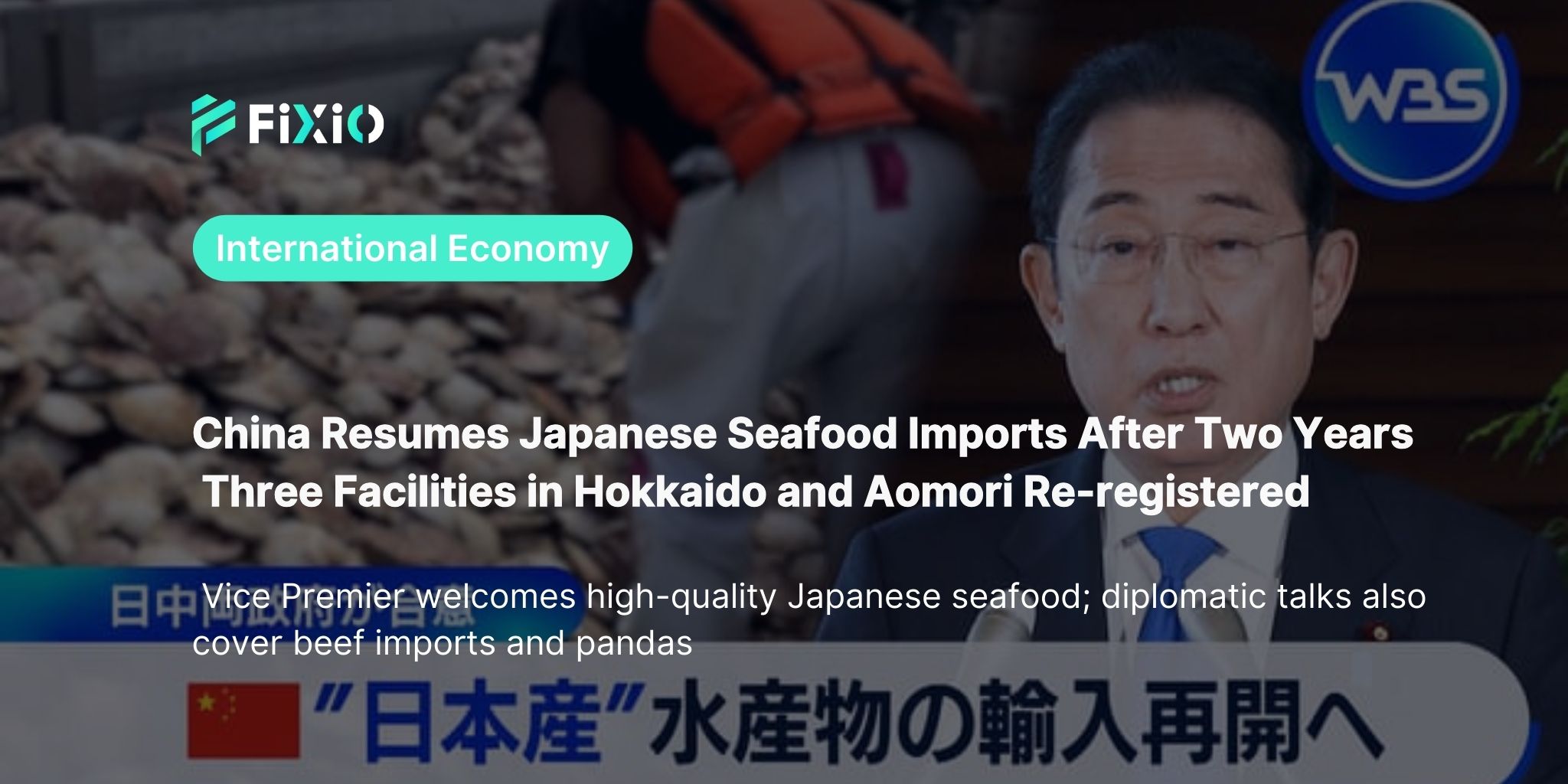
On July 11, 2025, the Chinese General Administration of Customs approved the re-registration of three seafood processing facilities located in Hokkaido and Aomori Prefecture, Japan, to resume imports of Japanese seafood. Approximately two years have passed since the Chinese government halted imports, and this move effectively marks a reopening of the market.
In August 2023, the Chinese government suspended imports of Japanese seafood following the release of treated water from the Fukushima Daiichi Nuclear Power Plant. However, in June 2025, Chinese authorities reassessed the safety and announced they would resume imports from regions outside the 10 excluded prefectures, such as Tokyo and Fukushima.
The three newly approved facilities will remain registered until July 10, 2030. Exporters must submit certification from Japanese authorities verifying the absence of radiation and confirming the origin of the products to ensure the safety of shipments.
According to Japanese government officials, Chinese Vice Premier He Lifeng expressed a positive stance during a meeting with LDP Secretary-General Hiroshi Moriyama, stating that "high-quality Japanese seafood that meets Chinese standards is welcome in the Chinese market." This reflects growing trust in the safety of Japanese products.
In addition to seafood, the two leaders also discussed the resumption of Japanese beef imports. Since the outbreak of BSE (mad cow disease) in 2001, China had suspended beef imports from Japan. However, discussions are underway to activate a safety agreement signed in 2019.
Vice Premier He also expressed an interest in starting official talks to resume the loan of giant pandas to Japan. Regarding Japan’s concerns over rare earth export restrictions, he noted that “China is referencing international practices and will need time,” requesting Japan’s understanding.
While seafood exports to China are gradually resuming, the Japanese government continues to push for the removal of restrictions on the remaining 10 prefectures. This development could contribute not only to improved Japan-China relations but also to revitalized economic exchange and local industries.
This kind of diplomatic agreement-driven export resumption could also influence stock prices of food-related companies and the foreign exchange market. In particular, seafood processors in Hokkaido and Aomori, as well as businesses in agriculture and livestock sectors, may see increased attention. As policy and markets become increasingly interconnected, political risk assessments are becoming more important for investment decisions.
For more updates on global economic and trade news:
Visit the official FIXIO Markets blog
After approximately two years since the suspension due to the treated water discharge from the Fukushima Daiichi Nuclear Power Plant, China has approved the partial resumption of imports of Japanese seafood. Three facilities in Hokkaido and Aomori have been re-registered, and exports are expected to resume. The announcement included welcoming remarks from the Vice Premier, renewed discussions on Japanese beef imports, and diplomatic references to pandas and rare earth elements.
Superior trade execution & trading conditions with the NDD method.

The online FX industry provides a platform for investors worldwide to engage in the buying and selling.

Subscribe to our daily newsletter and get the best forex trading information and markets status updates
Trade within minutes!
Comment (0)